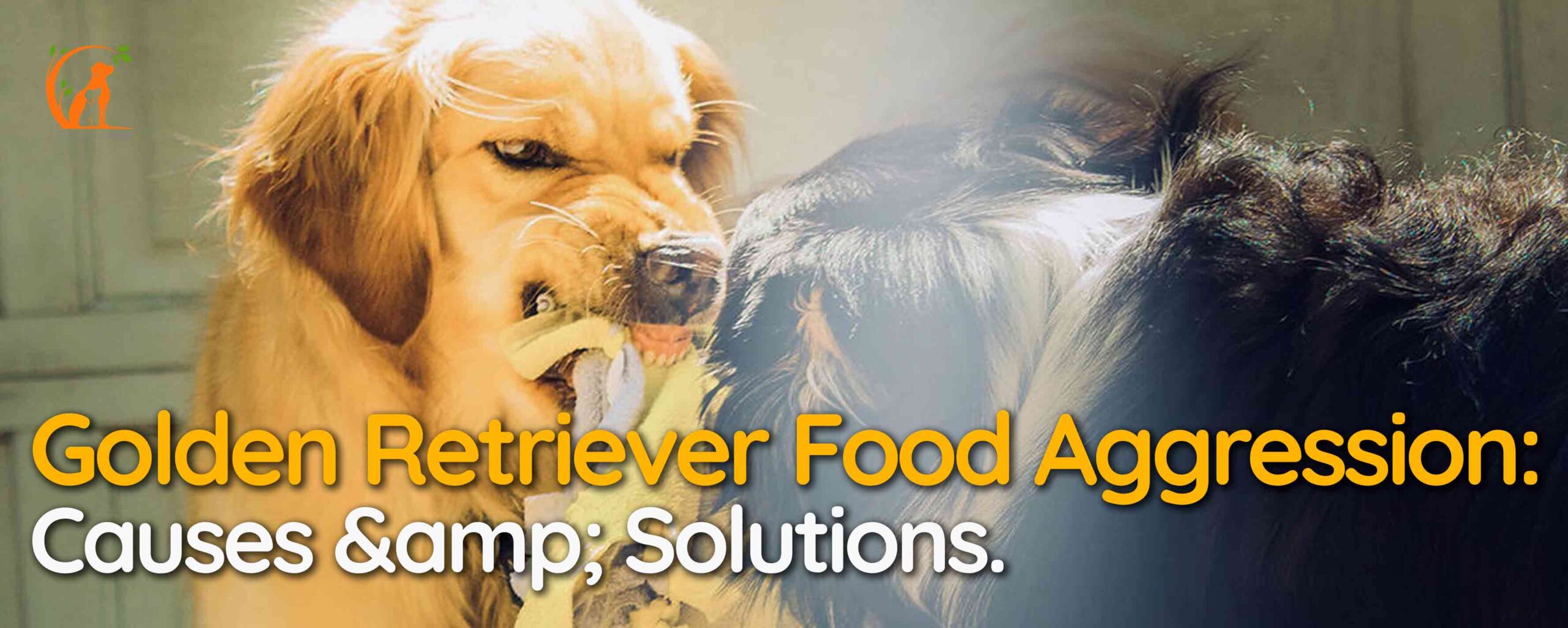Golden Retriever food aggression can be addressed through behavior modification techniques and proper training to create a positive feeding environment. Welcome to the world of Golden Retrievers, the beloved breed known for their friendly and gentle nature.
However, while these dogs are generally friendly, some may exhibit food aggression, which can be concerning for owners. Food aggression is a behavior where a dog becomes possessive or protective of their food, leading to growling, barking, or even biting if someone tries to approach their food.
To address this issue, it is crucial to understand the underlying causes and implement effective strategies to modify the dog’s behavior. We will explore the reasons behind Golden Retriever food aggression and provide insights and tips to help manage and overcome this challenging behavior.
Understanding Golden Retriever Food Aggression
Understanding Golden Retriever food aggression is crucial to maintaining a harmonious feeding routine. The causes of food aggression in these lovable dogs can vary, ranging from resource guarding instincts to past neglect or anxiety. Recognizing signs of food aggression is important for the safety of all family members and other pets.
Watch out for growling, snarling, or snapping while eating. Dealing with food aggression effectively requires a calm and consistent approach. Begin by establishing a feeding routine and ensuring the dog feels secure during mealtime. Gradually introduce positive reinforcement training techniques, such as rewarding good behavior around food and practicing gentle hand-feeding.
Seek professional help if the aggression persists or escalates. With patience and training, food aggression can be managed, allowing both you and your Golden Retriever to enjoy mealtime.
Causes Of Golden Retriever Food Aggression
Golden Retriever food aggression can be caused by various factors such as establishing dominance in the pack, resource guarding, and fear or insecurity. Dominance can manifest through aggressive behavior during meal times. Dogs may guard their food due to a natural instinct to protect their resources.
Fear or insecurity can also trigger aggression when it comes to food. It is important for owners to identify the root cause and take appropriate measures to address it. Providing a calm and structured environment, establishing consistent rules, and using positive reinforcement can help reduce food aggression in Golden Retrievers.
Professional training and consultation with a veterinarian may also be necessary in severe cases. Understanding the underlying causes and implementing effective strategies can promote a harmonious mealtime experience for both the dog and the family.
Recognizing Signs Of Food Aggression
Recognizing signs of food aggression in golden retrievers can be crucial in preventing potential issues. Growling or snarling may indicate a dog’s aggressive behavior towards food. Additionally, guarding behavior, such as standing over the food bowl or stiffening when approached, may also indicate food aggression.
Possessiveness over food is another common sign, with dogs showing reluctance to share their food or displaying aggression when others approach it. Understanding these signs can help pet owners address food aggression early on. By providing proper training and behavior modification techniques, such as controlled feeding and positive reinforcement, it’s possible to manage and even reduce food aggression in golden retrievers.
It’s important to seek professional advice if the behavior persists or escalates, to ensure a safe and peaceful feeding environment for both the dog and its human family members.
Dealing With Golden Retriever Food Aggression
Dealing with golden retriever food aggression requires establishing a feeding routine that promotes calm behavior. Positive reinforcement training can also be implemented to encourage good manners around food. If the problem persists, it is important to seek professional help from a dog behaviorist or trainer.
Gradual desensitization to food-related triggers can be helpful in reducing aggressive behavior. Avoid confrontations during feeding time and create a predictable mealtime environment to help your golden retriever feel more secure. Additionally, ensuring a balanced diet can contribute to overall well-being and may help alleviate food-related aggression in golden retrievers.
By following these guidelines, you can address and manage food aggression issues in your golden retriever effectively.
Conclusion
To ensure your Golden Retriever’s well-being and happiness, addressing food aggression is crucial. By understanding the signs and causes of food aggression, you can take proactive steps to prevent or manage this behavior. Providing a calm and structured feeding routine, using positive reinforcement training techniques, and gradually introducing mealtime challenges can help your furry friend feel more secure and confident around food.
Remember to consult with a professional trainer or behaviorist for tailored guidance and support. In addition, maintaining an open line of communication with your veterinarian is essential to rule out any underlying health issues that may contribute to food aggression.
By protecting your pet’s safety and promoting a positive feeding environment, you can cultivate a harmonious relationship with your loyal Golden Retriever. Let love and understanding guide you as you navigate this common issue, celebrating every small victory along the way.
Frequently Asked Questions Of Golden Retriever Food Aggression
Why Is My Golden Retriever Suddenly Aggressive?
Your golden retriever may be suddenly aggressive due to various factors including fear, pain, territoriality, or past negative experiences.
How Do You Punish Food Aggression In Dogs?
Punish food aggression in dogs by using positive reinforcement methods and seeking professional guidance.
Are Golden Retrievers Prone To Resource Guarding?
Yes, Golden Retrievers can be prone to resource guarding.
Why Is My Golden Retriever So Obsessed With Food?
Golden retrievers are known for their high food drive, which can make them seem obsessed with food.











